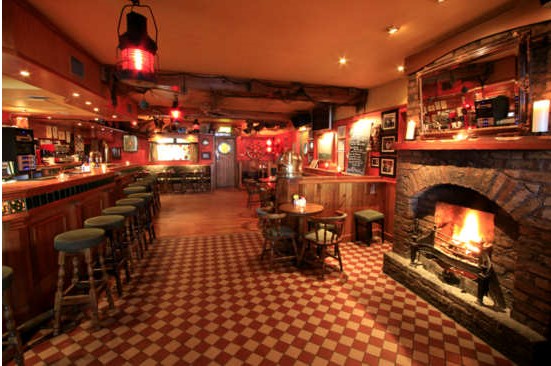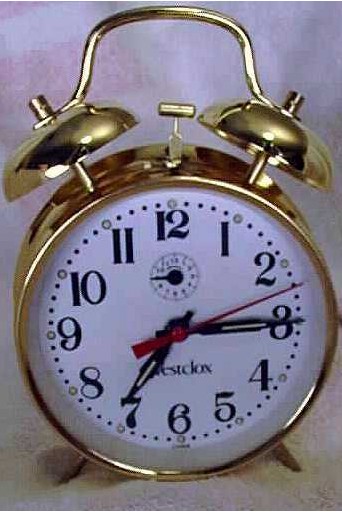Pubs 'n' Boats 'n' Planes 'n' Sundays
In the context of the question of 'Sunday' - raised most recently by the CalMac proposals for Sunday sailings, there follows two 'archive' articles on the subject.
These articles are for reference only; and any responses can be placed on the appropriate 'Debate' thread relating to Sunday/Sabbath in New Testament times.
What licence are we allowed on Sunday?
(First published in January 2001)
 It is reported that a Lewis hotelier is currently appealing against the local licensing court’s refusal to allow her hotel bar to be open on Sunday. The initial application was rejected as being “detrimental to the Sabbath.” And robust resistance to Sunday ferry sailings has taken the same line. It is reported that a Lewis hotelier is currently appealing against the local licensing court’s refusal to allow her hotel bar to be open on Sunday. The initial application was rejected as being “detrimental to the Sabbath.” And robust resistance to Sunday ferry sailings has taken the same line.
So-called Sabbath observance has become one of main criteria in the Highlands separating those of religious conviction from the habits and lifestyles of the surrounding secular world. And the church has tried to bring people into line. In 17th-century Dingwall “an elder was frequently sent round the town during Church time on the Sabbath to poynd those absenting themselves from public worship – an offence often aggravated by selling and drinking ale.”
But to employ the word 'Sabbath' to describe the day we now call Sunday is a misuse of the term. It properly refers to the Jewish Shabbat that is still today observed by religious Jews from sunset on Friday to the same time on the following Saturday evening. Even so, the early Jewish leaders who came to follow Jesus imposed no requirement on Gentile Christians to observe the Jewish practice embodied in the fourth commandment.
Sunday evolved, like many other church traditions, as an amalgam of pagan practices, Jewish traditions and gentile Christianity. As one ecclesiastical historian put it “Christianity didn’t destroy paganism; it adopted it.” No less than when Constantine the Great, as a newly-converted emperor, sought to simultaneously slight the Jews while appeasing the pagan Sun worshippers by shifting particular religious observances from Saturday (Shabbat) to Sunday. So in 321AD he made it a legal duty that all courts of justice, inhabitants of towns, and workshops were to be at rest on “venerabili die solis” – the “venerable day of the Sun.” Indeed the Catholic Church, in endeavouring to prove its authority over scripture, admits: “You may read the Bible from Genesis to Revelation, and you will not find a single line authorising the sanctification of Sunday.”
The attempted imposition by the Christian church of “Sabbath observance” is a distortion of what Jesus taught. It is a pharisaic-like effort to force others into a certain pattern of religious life and tradition. It is a misguided legalism that seeks to impose God’s standards (theonomy) on unbelievers; and “christianise” society by attempting to force it into a theocratic mode. But the kingdom that Jesus came to establish is not ultimately of this world; and Jesus roundly condemned those of his time who had set themselves up as God’s policemen.
Nevertheless our non-stop society should pause for a moment. The pattern of a regular day off was enacted by God himself in the very beginning. The word Shabbat means “rest” in the sense of “taking time out”. It is a creation ordinance. Jesus himself emphasized this when he said “Sabbath [rest] was made for man; not man for the Sabbath.” It is for our well-being; not imposed as a restriction. Post-revolution France in a fit of decimalisation attempted to move to standard 30-day months and 10-day weeks. Obviously the effort failed. And scientific studies have shown that the human body, when deprived of external clues, naturally adopts a 7-day cycle.
However even the religious Jews rebelled. And, like our society today, maximising profit was a large part of their motives. “When will the new moon be gone, that we may sell corn? “And the Sabbath, that we may set forth wheat, making the [measure] small, and the shekel great, and falsifying the balances by deceit?” They brought disaster on themselves by willfully ignoring God’s principles.
So while it may be that the Christian church has no right to claim a Sabbath-equivalence for Sunday, nor any biblical mandate to impose its views on others, we need to pause. As a nation, as a society and as individuals we put ourselves in very serious jeopardy regarding our general well-being by turning our backs on God’s pattern for healthy living. We might think that we know better than our Maker and His pattern for our creation, but in fact we never do.
-oOo-
Loganair flying into a storm
(First published in July 2002)
 Yesterday, Aberdeen hosted the ninth conference of the European Pineal and Biological Rhythms Society. And the study of bio-rhythms and body clocks is fascinating — profoundly influencing, as they do, the functions of life and our world’s natural order. They set sleep patterns, produce jet lag, and underlie the astounding navigational precision of migrating birds. But our cycles and modes of life are also influenced by and embedded in our respective cultures and belief systems. Yesterday, Aberdeen hosted the ninth conference of the European Pineal and Biological Rhythms Society. And the study of bio-rhythms and body clocks is fascinating — profoundly influencing, as they do, the functions of life and our world’s natural order. They set sleep patterns, produce jet lag, and underlie the astounding navigational precision of migrating birds. But our cycles and modes of life are also influenced by and embedded in our respective cultures and belief systems.
And unsurprisingly, Loganair’s plans to run Sunday services to the Isle of Lewis have caused a stir.
Such a move — in these parts, on that special day — is a 'big domino'. If it falls, the Hebrides will most likely succumb, as other places have, to the commercial pressures and social change that are turning us into a non-stop world. So Sunday, as a day of rest, is on dodgy ground. But not just for secular reasons.
The Fourth Commandment says: “Remember the Sabbath day, to keep it holy.” However, the commandment was given to the Jews; and it related to the 24-hour period ending at sunset on Saturday. The move to a Sunday rest-day occurred gradually over the early centuries of Christendom; and for a variety of (non-biblical) reasons. The 'first day of the week” worship meetings of the early disciples were on Saturday after dark; before work the following (Sunday) morning. (And regarding the term 'the Lord’s Day', which occurs only once in the Bible, there are no grounds for interpreting this expression to mean Sunday.)
But the Roman authorities outlawed these Saturday gatherings. Later influences included the gradual change in the overall ethnicity of the church from being mainly Jewish to predominantly Gentile.
Then the Emperor Constantine amalgamated his new-found 'Christianity' with pagan worship — centred on 'the Venerable Day of the Sun'. Subsequently the Council of Laodicea prohibited Sabbath (Saturday) rest in 363AD.
Yet for hundreds of years, Scotland and its Celtic Church (planted by Columba) resisted this change — even up to the 11th century when Scotland came under the Catholic influence of (Saint) Margaret, King Malcolm III’s second wife. Of that period T. Ratcliffe Barnett wrote: “The Scots had perhaps kept up the traditional usage of the ancient Irish Church which observed Saturday instead of Sunday as a day of rest.”
Moreover, Martin Luther and the early Reformers refused to regard Sunday as the Christian fulfillment of the Jewish Sabbath. So even though Scotland enacted 'Sunday' legislation in 1579, the battle to preserve the sanctity of Sunday struggles; not only in the face of burgeoning secularism and consumer demand, but also in terms of finding biblical support.
However, regarding which day we rest is subordinate to the most fundamental principle of all. And back now to the circadian rhythms of the Rowatt Institute’s Professor Peter Morgan and his international symposium.
The principle of resting on one day in seven is a pattern that is embedded in our genes. (And the “daily clock” gene has 24 segments called exons.) It thwarted the French in their post-Revolution efforts to create a 10-day week. It’s a creation ordinance in Genesis that God employed when He made the world. It is the way He has fashioned us; it’s been instituted for our good. “The Sabbath (rest) was made for man.” It was and is our Maker’s template for healthy minds, bodies and spirits; and for a healthy society. And we abandon it at our peril.
|